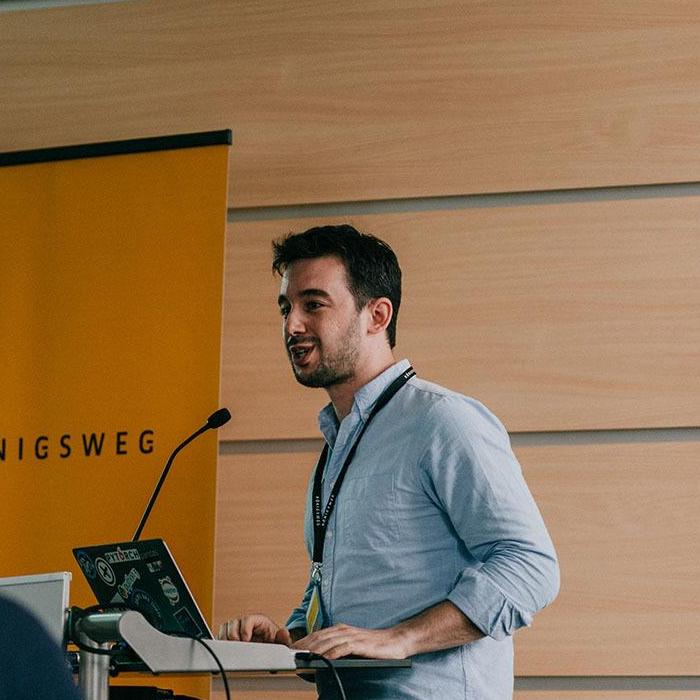Czwartek, 17.12.2020 19:00
This was an online-only meeting, streamed on YouTube and Facebook.
Christian Barra
10 common mistakes with Kubernetes and containers
Kubernetes and containers are the building blocks of a modern cloud infrastructure and de-facto the standard for deploying, managing and orchestrating applications at scale.
How many things can go wrong? 💣
More than you can think about!
Let's take 30 minutes together to go trough 10 common mistakes on using Kubernetes and containers and how to avoid them.
Jason R. Coombs
Exploration of Shells, Environments, and Packages
In this informal, interactive talk, Jason walks through some of the highlights of his command-line experience:
- Introduction to
xonsh, a Python-based shell inspired by bash. Have you ever wondered why you have two different languages when working with your default shell versus your Python shell? Ever pondered using Python as your main interactive shell?xonshanswers this question by providing a production-ready shell that's portable and re-uses the language constructs and libraries you've come to love. Jason shows off the shell and how it's integrated into his working environment. - Next, Jason introduces
pip-runandpipx, two complementary tools for lightweight command-line tooling built on Python packages. - Finally, Jason will provide a quick update on the recent changes in the Python Packaging ecosystem around PEP 517 and 518, distutils, pkg_resources, and answer questions about packaging.

Prelegenci
Christian Barra
I'm a developer, engineering leader and entrepreneur living in Berlin, currently the Tech Lead of the Farm Service Domain at Infarm.
I'm a proactive member in the tech community, through contributions to open source software, coaching, speaking and organising events.
In the last years I organized more than 20 events, ranging from meetups to +1000 people conferences, like EuroPython and PyCon DE & PyData Berlin.
I'm a Python Software Foundation Fellow and former board member of the EuroPython Society.
Jason R. Coombs 
Jason has worked with Python since 1998 when for a compilers course co-authored a compiler for Python. Since then, his passion for the language has driven him to build web applications including an SVG library for international peacekeeping, built web-scale applications for public data systems, and contribute functionality to core Python. This passion has driven Jason to adopt important packages in the Python ecosystem, including keyring, setuptools, CherryPy, and path, and to innovate with tools like pip-run and importlib.metadata that aim to address some of the stickier corners of the Python experience. Jason currently maintains over 140 packages on PyPI and brings a perspective that goes back to Python 1.5.

Linki
- https://www.youtube.com/channel/UCXjIyyK1qEktJ8xt3PNXbQw - YouTube stream
- https://www.facebook.com/pykonik - Facebook stream





